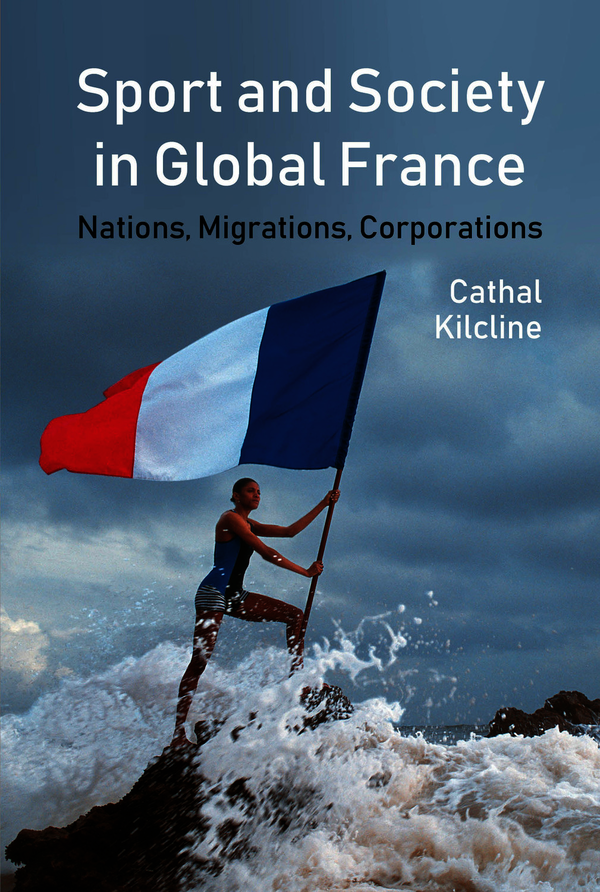

Key Thinkers of the Radical Right: Behind the New Threat to Liberal Democracy
Edited by Mark Sedgwick
Publisher: Oxford University Press
Recommended by Louie Dean Valencia-García
Edited by Mark Sedgwick, whose work on European traditionalism and Muslims in Europe has carved out a niche for itself in the study of the European radical right, this transdisciplinary volume brings together scholars to take on the radical right-wing intellectual perspectives that currently are fueling a challenge to liberal, democratic, and pluralistic thought. In this excellent collection, the authors study the philosophy and lives of the (mostly) men who in the years following the Second World War have been influential in European and American radical right circles, including: Oswald Spengler, Ernst Jünger, Carl Schmitt, Julius Evola, Alain de Benoist, Guillaume Faye, Jared Taylor, Alexander Dugin, Richard Spencer, and Daniel Friberg. The decision to start with the work of Spengler is particularly telling of contemporary discourse amongst the radical right in Europe and the U.S. around a belief that Western European culture is somehow declining—what odious white nationalists have termed “white genocide.” One noticeable exception to this list of male thinkers is the inclusion of a chapter by Sindre Bangstad on Bat Ye’or, which is particularly strong.
The volume synthesizes and overlaps philosophical perspectives and differences over often turbulent and transitory lives, explaining the emergence of radical right-wing thought that has today become known as the Alt-Right or the European New Right. Benjamin Teitelbaum’s chapter on Daniel Friberg, a prominent Swedish nationalist interested in “metapolitics,” is insightful in unexpected ways. Teitelbaum writes, “I have followed Friberg’s career since I began conducting ethnographic research on Nordic nationalists in 2010, and have come to know and enjoy him personally—and this despite major differences between us. I have dined, drunk, and lived with him.” This timely edited volume will be of interest to scholars and broader audiences seeking to understand the intellectual underpinnings of the radical right today, while ultimately relying upon ethno-nationalist tropes and racist scapegoatism of old. By anchoring these ideologies to the thinkers themselves, this volume not only gives important context, but also demonstrates ways in which right-wing radicals draw upon each other in an attempt to legitimize a canon of their own.

Sport and Society in Global France: Nations, Migrations, Corporations
By Cathal Kilcline
Publisher: Liverpool University Press
Recommended by Hélène B. Ducros
As France prepares to host the 2024 Olympics, Sport and Society in Global France constitutes a cultural history of the sporting landscape in contemporary France that examines the ways in which sports and sports figures have been represented in the news, specialized press, audiovisual media, new media and advertisement, and the resulting processes effecting the emergence of a sports imaginary in the Hexagon over the last thirty years. Successful in supporting the case for sports as an entry into the study of society and a lens through which scholarly analysis uncovers important socio-cultural transformations, Cathal Kilcline surveys the “sportsworld” of today’s France. Engaging readers into selected vignettes based on his personal experience of sports-related events there, he shows that France’s “sporting spectacle” has become a space for countless entanglements in which French society plays itself out and through which Frenchness can be explored. From an artistic rendering of Zidane’s infamous headbutt, to the now largely ignored Paris-Dakar (relocated to South America), the organizing of the Senegalese filière for soccer recruits, or Qatari’s investments into Parisians’ beloved PSG team, the book scrutinizes sports development and media development in parallel, highlighting how sport sometimes functions as a reflection of the mutations occurring in French society, while also standing as a counter-society where hypermediatization, commercialism, and deterritorialization dynamics implicate various actors, from the State in close relationship with sports federations and training programs to the public.
More than evidence of the changing role of sports and athletes in a society where sports and intellectualism have traditionally been incompatible realms, the volume shows that sports can be where the values of the République and identities get shaped, where nationhood crashes into the economic imperatives of the entertainment industry, and where national and post-national forces interweave to trigger the emergence of national heroes quickly morphed into international figures by global capital flows of great magnitude. Besides explaining sportsworlds, the book prompts a reflection on colonial legacies, migrations, neo-colonialism, multinational corporations, North-South inequalities and new forms of exploitation. Confirming sportscapes as pertinent sites of inquiry to understand numerous socio-cultural dynamics in Europe, the book is highly relevant beyond Francophone studies, reaching into post-colonial studies at large, as well as studies of mobility, youth, media and communication, and borders.
Published on April 5, 2019.




